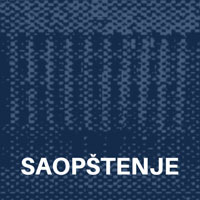Initiative for Assessment of the Constitutionality of the Law on Free Legal Aid

On 25th December 2018, the Humanitarian Law Center submitted to the Constitutional Court of Serbia an initiative for assessing the constitutionality and compliance of the Law on Free Legal Aid (ZBPP) with the Constitution of the Republic of Serbia, generally accepted rules of international law and ratified international conventions. The HLC considers the legal solutions foreseen in the ZBPP on the one hand deny equal access to justice to citizens, since they exclude a wide range of persons who could be users of free legal aid, whilst, on the other hand, they narrow down the circle of providers of free legal aid, leaving a large number of Serbian citizens without adequate legal protection.
At the end of November 2018, the National Assembly adopted the ZBPP, although its actual implementation was postponed until 1st October 2019. The debate on various proposals of this law lasted for over a decade, and one of the biggest obstacles to its adoption was the disagreement between bar associations in Serbia and citizens’ associations regarding the issue of who can provide free legal aid. For this reason, the HLC considers one of the most controversial provisions of the ZBPP to be Article 9, which provides that free legal aid can only be provided by lawyers, local self-government units and organizations providing free legal assistance in the fields of protection against discrimination and asylum. The organizations dealing with issues that do not include protection against discrimination and asylum cannot provide free legal aid, but free legal support exclusively, as reflected in administrative matters such as, for example, filling in forms.
Through a legal solution of this type, those organizations which have existed for many years and which, thanks to funds received through donations and projects, have been successful in providing free legal aid to citizens who otherwise could not exercise their rights, are now prevented from achieving the goals for which they were founded.
Despite the existence of such effective organizations, the legislator has opted for a solution that is contrary to the principles of the rule of law, legal security and justice, and which endangers a citizen’s right to legal aid as guaranteed by the RS Constitution. By limiting the number of legal aid providers without a clear and justifiable reason, the constitutional right of citizens to adequate legal aid provided by those organizations dealing with these specific legal issues, which have the highest expertise in their field and in which certain groups of free legal aid seekers have the highest confidence, is also limited.
The HLC therefore considers that the obligation of the Constitutional Court is to take this initiative into consideration as soon as possible, and to declare unconstitutional those provisions of the ZBPP that endanger basic constitutional principles, violate guaranteed human rights and prevent citizens from adequately using the free legal aid for which they have had to wait an unduly long time – more than ten years.







